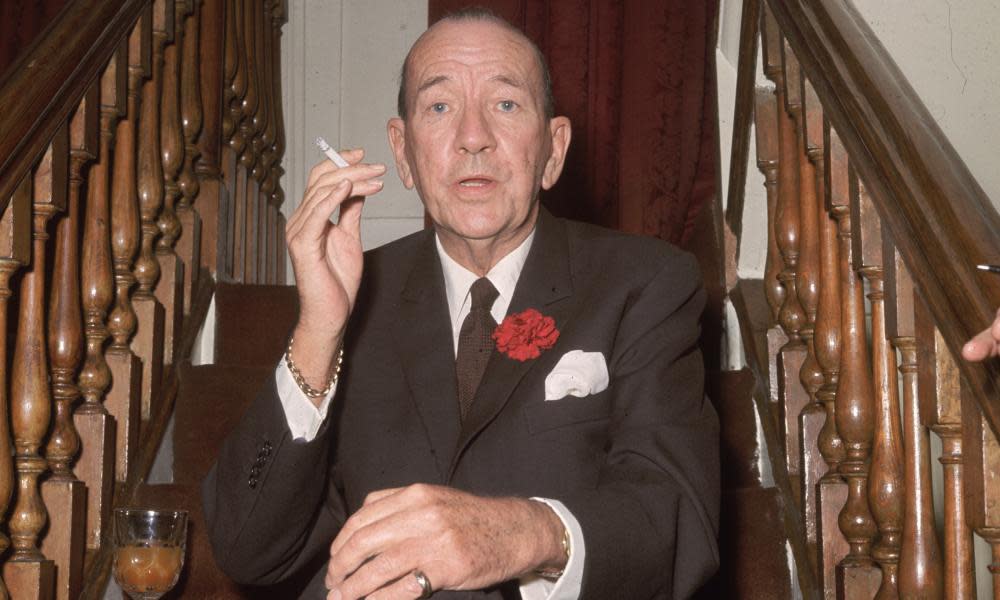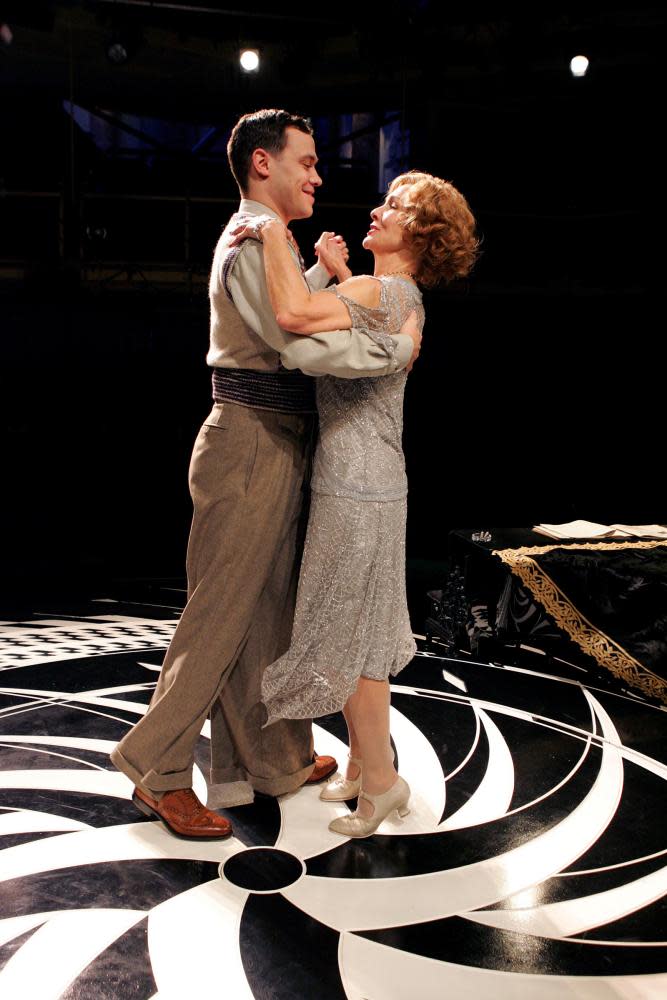Noël Coward was not just an amiable jester but a scathing social satirist

Anniversaries offer a chance for reappraisal. Fifty years after the death of Noël Coward, it is worth asking whether, as a playwright, he still speaks to us today. You might have thought that his world had faded but the truth is that between 1924 and 1941 Coward wrote five comedies – Hay Fever, Private Lives, Design for Living, Present Laughter and Blithe Spirit – that are regularly revived. They may look like escapist diversions but their structural symmetry, verbal precision and opportunities for actors mean that they are bankers which have achieved the status of minor classics.
But, rather than dwell on the famous five, I think it is worth asking whether there is more to Coward than a mastery of quilted fun and whether we should range more widely through his 50 or so plays. Oliver Soden’s excellent new biography, Masquerade, reveals Coward to be a more complex individual than we had acknowledged: Soden even suggests that, in his combination of manic activity and deep melancholia, there was a hint of what we now know as bipolarity. Sheridan Morley, Coward’s first biographer, called his book A Talent to Amuse. But, while Coward liked to present himself to the world as a message-free entertainer, he was a finger-wagging preacher and occasionally scathing satirist. You could, in fact, write an alternative study of Coward called A Talent to Abuse.

I’ve recently reread four early Coward plays which reinforce my notion that he was far more than an amiable jester. His first major success, The Vortex, first performed in 1924, looks like a chamber-drama about an intense mother-son relationship. It is, in fact, shortly to be revived at Chichester with a real-life mother and son – Lia Williams and Joshua James – in the leading roles. But, while the final confrontation has obvious echoes of the closet scene in Hamlet, the play also feels like a condemnation of Jazz Age frenzy and hysteria.
Nicky Lancaster, the drug-addicted hero, says at one point “we swirl about in a vortex of beastliness” and we are reminded that the title refers to a whirlpool that swallows up and absorbs its victims. The Vortex gave Coward the success he craved and he followed it with the perennially popular Hay Fever. But in the same productive period he wrote the overlooked Easy Virtue: seemingly a piece of updated Pinero in which a shady lady with a past comes into conflict with her starchy in-laws.
Reading it today, what is striking is Coward’s fierce condemnation of social convention, sexual repression and upper-class philistinism. Reviewing the last major revival at Chichester in 1999, I said the play had curious affinities with John Osborne’s Look Back in Anger in that it shows a protagonist who finds no responsive chord in the surrounding world and that the most sympathetic character was a retired colonel who represented a vanished Edwardian decency.
Related: Noël Coward’s private lives: the photographs that could have landed him in jail
Arguably the most curious of the early Cowards is Semi-Monde written in 1926 but never staged until 1977 when Philip Prowse did a sumptuous production for the Glasgow Citizens. This is Coward at his most self-consciously cynical as he shows the shallowness of a group of socialites as they parade through the lounge of the Ritz Hotel in Paris. With its cast of 28, the play is unwieldy but what hits one is Coward’s withering portrait of the inconstancy of his many gay, lesbian and bisexual characters. Coward’s own inclinations were never in doubt but you might conclude from this glittering kaleidoscope that he felt homosexuality was something that should be practised but not preached.
The fiercest of this early quartet is Post-Mortem written in 1930 and seen in a truncated TV version and a revival at London’s King’s Head. It is commonly described as an anti-war polemic. Since it is about a hero, killed 1917 who returns as a ghost to see how the wartime sacrifice has been squandered in peace, it is really an attack on Coward’s own times. What is extraordinary is the breadth of the assault: church, state, a mendacious press all come under Coward’s critical fire in a play about what, in a sketch from Beyond the Fringe, was called The Aftermyth of War. It is no surprise, after this, that the Observer critic, St John Greer Ervine, dubbed Coward a “Savonarola in evening dress”.

I’m not suggesting this is the whole truth about Coward: simply that by focusing so much on his peerless quintet of comedies, we ignore the variety of his work and his early role as a surprisingly vehement social satirist. While championing his plays of the 20s and 30s, I would accept that he went into steep decline as a playwright after the second world war. You can see why from his diaries in that he cannot accept that the world has changed: “It is appalling to think that our Allies and enemies can see us chuck out the man who has led us so magnificently through these horrible years,” he writes of Churchill’s electoral defeat in 1945.
The once radical Coward turned into sclerotic reactionary but, while postwar plays such as South Sea Bubble and Nude with Violin are today unrevivable, there is one late work eminently worth another look. This is A Song at Twilight, premiered in 1966, in which Coward views compassionately a famous writer who, towards the end of his life, is outed by an ex-mistress. The Coward who waspishly portrayed gay life in Semi-Monde here enters a plea for sexual tolerance and argues that, by living a lie, the hero has recklessly maimed his talent. It is an Ibsenite theme and a moving coda to Coward’s career. It also confirms the fundamental truth of a comment by the late Irving Wardle that “for all their authentic glitter and disclaimer of any purpose beyond entertainment, Coward’s plays are among the most earnestly moral works to be found anywhere in modern drama.”

 Yahoo News
Yahoo News 
